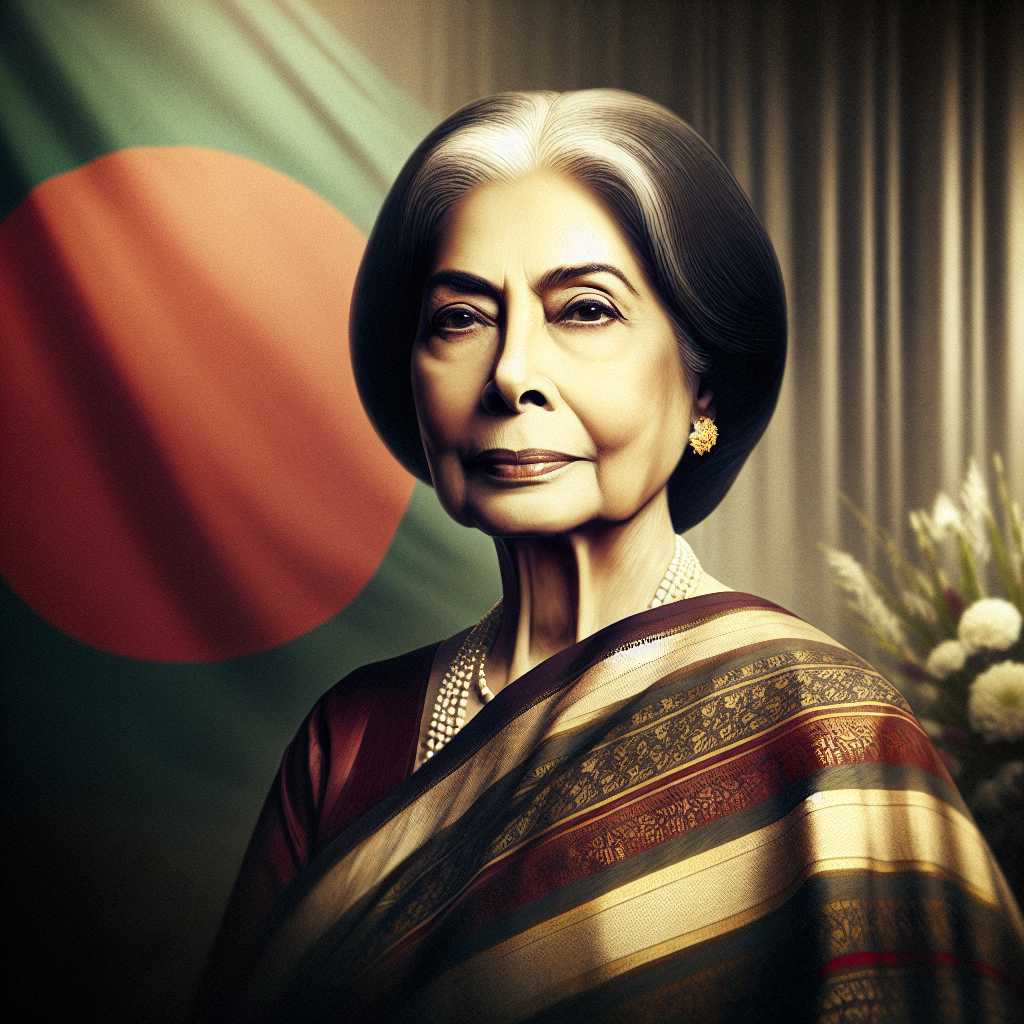### Sheikh Hasina: A Political Journey Through The Heart of Bangladesh
Sheikh Hasina, the daughter of Bangladesh’s founding father Sheikh Mujibur Rahman, has been at the forefront of the country’s political scene for decades. As the leader of the Awami League and a multiple-term Prime Minister, her political journey reflects the tumultuous and transformative history of Bangladesh itself.
Early Life and Political Awakening
Born on September 28, 1947, Sheikh Hasina is the eldest of five children of Sheikh Mujibur Rahman. Her early life was spent in the backdrop of the struggle for Bangali nationalism, a movement that her father led which inevitably contributed to the shaping of her own political vision. After completing her education at the University of Dhaka, Hasina’s political journey began in earnest when Bangladesh gained independence in 1971.
Rise to Political Prominence
The assassination of her father along with most of her family members in 1975 forced Hasina into exile. This tragedy dramatically changed her life and propelled her into a more active political role. In 1981, she was elected as the President of the Awami League in absentia and returned to Bangladesh to lead the party.
Return to Bangladesh and Leadership Challenges
Upon her return, she was greeted by a fractured political landscape and tumult within her own party. Throughout the 1980s and early ’90s, Sheikh Hasina worked to unite the Awami League and spearheaded movements against military rule, eventually leading to the end of autocratic governance in Bangladesh.
As Prime Minister: Achievements and Criticisms
Hasina’s first term as Prime Minister from 1996 to 2001 was marked by important strides in economic development, including efforts towards modernizing the country’s infrastructure and increasing educational opportunities. However, her administration faced criticism over corruption allegations and political turmoil.
Her subsequent terms have seen significant socio-economic improvements but have been mired in contentious politics. Critics charge her government with authoritarian tendencies, particularly concerning the stifling of dissent and press freedom.
Hasina’s leadership is also noted for landmark steps in international relationships and climate change advocacy — two areas where Bangladesh has carved a significant role under her leadership.
Economic Growth Under Hasina’s Leadership
Bangladesh’s economy has registered impressive growth rates during Hasina’s tenure as Prime Minister. Social development indicators such as literacy rates and health care access have improved considerably although challenges remain.
The government, under her stewardship, has been lauded for progress in gender parity and women’s empowerment—a legacy emanating from both her policy focus and personal example as one of the world’s few female state leaders.
Controversies and Political Strife
Despite development successes, Sheikh Hasina’s time in power has also been colored by various controversial episodes. The country’s political landscape is frequently marked by violent clashes between ruling and opposition parties. Critics cite crackdowns on freedom of expression—both through legislation and alleged political persecutions—as dark spots on her leadership record.
Human Rights Record
Sheikh Hasina’s administration has maintained a precarious balance with respect to human rights issues. While claiming to uphold democratic values, she faced international scrutiny amidst accusations involving extrajudicial killings and alleged repression of political opponents.
Global Diplomacy
Recognized internationally for calling attention to global issues like climate change and Rohingya refugee crisis management, Sheikh Hasina garnered respect as a leader on the world stage capable of simultaneously navigating humanitarian advocacy and pragmatic politics.
Notes
*Image Description:*
A dignified portrait of Sheikh Hasina wearing a traditional Bangladeshi saree, with the national flag of Bangladesh faintly visible in the background signifying her role as the prime representative of the nation.
